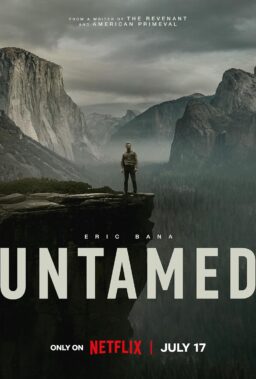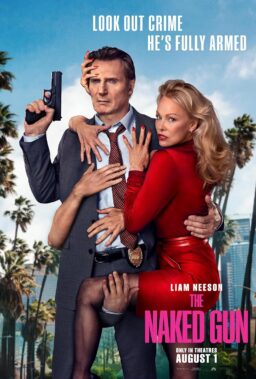1967
1. “Bonnie and Clyde”
2. “Ulysses”
3. “Blow-Up”
4. “The Graduate”
5. “A Man for All Seasons”
6. “The War Game”
7. “Reflections in a Golden Eye”
8. “Cool Hand Luke”
9. “Elvira Madigan”
10. “In the Heat of the Night”
11. “The Family Way”
12. “Our Mother's House”
13. “Marat/Sade”
14. “Two for the Road”
15. “El Dorado“
Ebert’s Best Film Lists1967 – present
Nothing I have seen since has persuaded me to change my opinion that “Bonnie and Clyde” was the best film of 1967.
It was also the most controversial film during a very good year for the movies, and that may be as important as its greatness. People are not only going to movies in greater numbers than at any time since TV, but they seem to be taking movies more seriously and talking about them more.
This was particularly true of “Bonnie and Clyde,” which has been damned and praised at every possible level. It earned that attention, I believe, because it did supremely what Hollywood at its best always tries to do: It became a “total movie.”
By that I mean that it tried to satisfy its audience on every level. Most movies cop out by appealing only to highbrows (Bergman’s “Persona“) or lowbrows (Elvis Presley). It takes a certain amount of courage to attempt to meet everyone at his own level, and when you succeed you have probably created a work of art. Arthur Penn, the director of “Bonnie and Clyde,” succeeded – and his film not only inspired the intellectuals in their cubbyholes but fascinated people who wanted to see a good gangster movie.
And it did something else as well, something that many other good movies this year have also done. It was a “message movie” in which the message had nothing to do with the story. Certain critics have objected because, they claim, “Bonnie and Clyde” showed its heroes as attractive people in glamorous adventures and then tacked on a routine Crime Doesn’t Pay moral at the end by killing them.
Nonsense. The best movies are going beyond the old-fashioned story in which the moral is spelled out at the end. There is a more effective way to present a message, and that is by burying it in the method of the movie itself. Penn does this by deliberately
placing humor side-by-side with violence, so that the audience is laughing whenever violence fills the screen. This is therapy of an excellent sort and toward the end we do not laugh anymore, not even when the jolly music on the sound track invites us to.
All of this talk about “Bonnie and Clyde” has been partly because the movie fascinates me, and partly because I think it illustrates a 1967 trend. This was the year when Hollywood was rediscovered, after a decade in which the most interesting films came from Europe. “Bonnie and Clyde” was a Hollywood movie in every detail – director, stars, Technicolor, Warner Bros., the works. For years it has been gospel that Hollywood is dead, and yet it produced many of the most interesting movies of 1967.
All of these, for example, were either entirely Hollywood movies or used Hollywood stars and production methods: “Cool Hand Luke,” “The Graduate,” “In the Heat of the Night,” “Two for the Road,” “Divorce American Style,” “El Dorado,” “Reflections in a Golden Eye,” “Camelot” and “Barefoot In the Park.” They’re not all on my list of the best films of 1967, but they were all very good films, and none seemed particularly handicapped by the Hollywood albatross (except perhaps “Camelot”).
This was also a year in which films pushed further than ever before into an honest examination of the way we really live. Films like “Ulysses,” “Blow-Up.” “The Graduate,” “Reflections in a Golden Eye” and “The Family Way” presented the personal lives of their subjects with a frankness never before seen on the screen. Paradoxically, all these films were “cleaner” or “more moral” than many films which dared less. The subject matter, no matter how unconventional, is not nearly as important as the film’s attitude toward it.
By illustration, there were no “dirtier” films this year, I believe, than “Valley of the Dolls” and “I, a Woman.” They were “dirty” because they were frankly designed to appeal to audiences who find sexual life itself to have something “dirty” about it. Both films had an unclean, diseased attitude; one felt embarrassed watching them because they were so uneasy about their own subject matter.
Yet censors measure a film’s moral quality, not by its intention and honesty, but by how many square inches of flesh are revealed or how many forbidden words uttered. And by these sick criteria, “Ulysses” and “Blow-Up” outdistanced the field. The hidden factor that so many people found objectionable in them, I suspect, was probably not their content but their truthfulness.
To be quite honest, most of us use four-letter words when we think to ourselves. We only use euphemisms when we talk aloud. “Ulysses” went into the minds of recognizable human beings and revealed their thoughts about those things most important to them – expressed in the only words they knew. In that context, even the most “shocking” four-letter word is infinitely
healthier than the language in “Valley of the Dolls,” which employs third-rate vulgarities like “bitch” simply for shock value.
“Blow-Up,” like its spiritual ancestor “La Dolce Vita,” used a pitiless examination of modern life as a way to comment on its lack of meaning. All things are equal in the world of the photographer in “Blow-Up” – love, art and personal integrity are no more important than antique airplane propellers.
The photographer takes his values from the immediate moment. He attends a rock session and risks his life to snatch the smashed guitar of a pop singer from a mob of teenagers. Once he has escaped from the mob, the guitar has no more meaning, and he throws it away. When he finally discovers a murder, or thinks he has, the real world turns out to be beyond his grasp.
The next three films on my list require little comment aside from the obvious observation that I rate them highly. “A Man for all Seasons,” last year’s Academy Award choice as the best film, is listed here because it didn’t open in Chicago until 1967. It is a literate, humane treatment of the dilemma an honest man faces in a corrupt society.
The same theme is the subject matter of “The Graduate,” which was reviewed in The Sun-Times too recently to justify extended comment now. It returns an absolutely ethical college graduate to the corrupt suburban society that somehow gave him birth, and he fights back as best he can.
“The War Game” is a vitally important film that presents with absolute conviction what would happen after a “small” nuclear explosion. Peter Watkins made it in the form of a television documentary, painstakingly cataloging what would really happen if civilization were interrupted by the Bomb.
I was apparently the only critic in the hemisphere to praise John Huston‘s “Reflections in a Golden Eye,” a distinguished film in which Marlon Brando, after seven years of wandering in the wilderness, returns at last to the peak of his talent. I am not inclined to modify my opinion.
“Reflections” certainly had weaknesses, but not the ones so many critics singled out. Its washed-out sepia color seemed suited to the eerie quality of its subject matter. Brando’s dialog, so often delivered in an incomprehensible Georgia mumble, needed to be delivered exactly like that: Here was a man so driven into himself that he could hardly force words much less himself, into the, outer world.
“Cool Hand Luke” is interesting for its fine performances and for the way Paul Newman completes his development of what can now be called the Newman Hero. In “The Hustler,” “Hud,” “Harper,” and “Hombre” and finally in “Cool Hand Luke”, he has taken the standard movie hero and turned him inside out.
“Elvira Madigan” has been reviewed here at length recently. Its director, Bo Widerberg, tells a love story, beautiful on its surface and tragic underneath, about a young couple who spends a summer together and then commits suicide.
“In the Heat of the Night” was distinguished primarily by Rod Steiger‘s brilliant performance, which deserves an Oscar as the best of the year. The story itself was slightly too pat, although it did present Sidney Poitier in a new light. This was Poitier’s first opportunity to step down from his series of noble characters and become angry and frustrated for a change.
To the top 10 films, I’ve added five more that I remember favorably. “The Family Way” introduced Hayley Mills in her first adult role: a new bride who moves with her husband into his father’s house.
“Our Mother’s House” was a thriller about a family of children who conceal their mother’s death to avoid being sent to the orphanage and then have to deal with a long-missing father (Dick Bogarde) who unexpectedly appears. “Marat/Sade” was Peter Brook‘s film version of his own brilliant stage production. “Two for the Road” saw Stanley Donen at the top of his form, directing Audrey Hepburn and Albert Finney in a brightly photographed comedy about courtship and marriage. “El Dorado” may seem to be in heady company, but I think it belongs on the list. It starred John Wayne and Robert Mitchum, was directed by the old master of action, Howard Hawks, and was to all intents a tongue-in-cheek remake of Hawks’ own “Rio Bravo“(1959).











